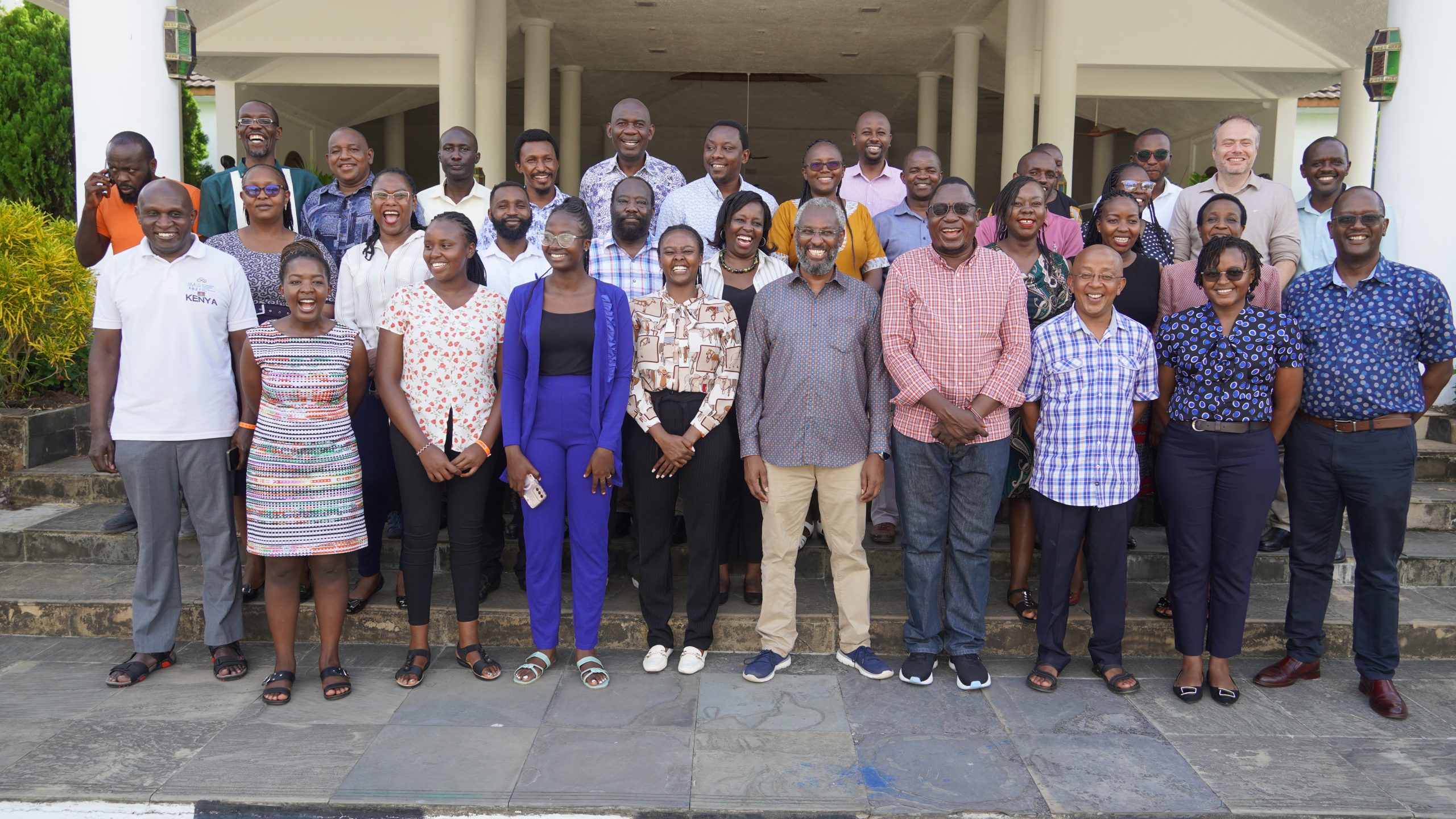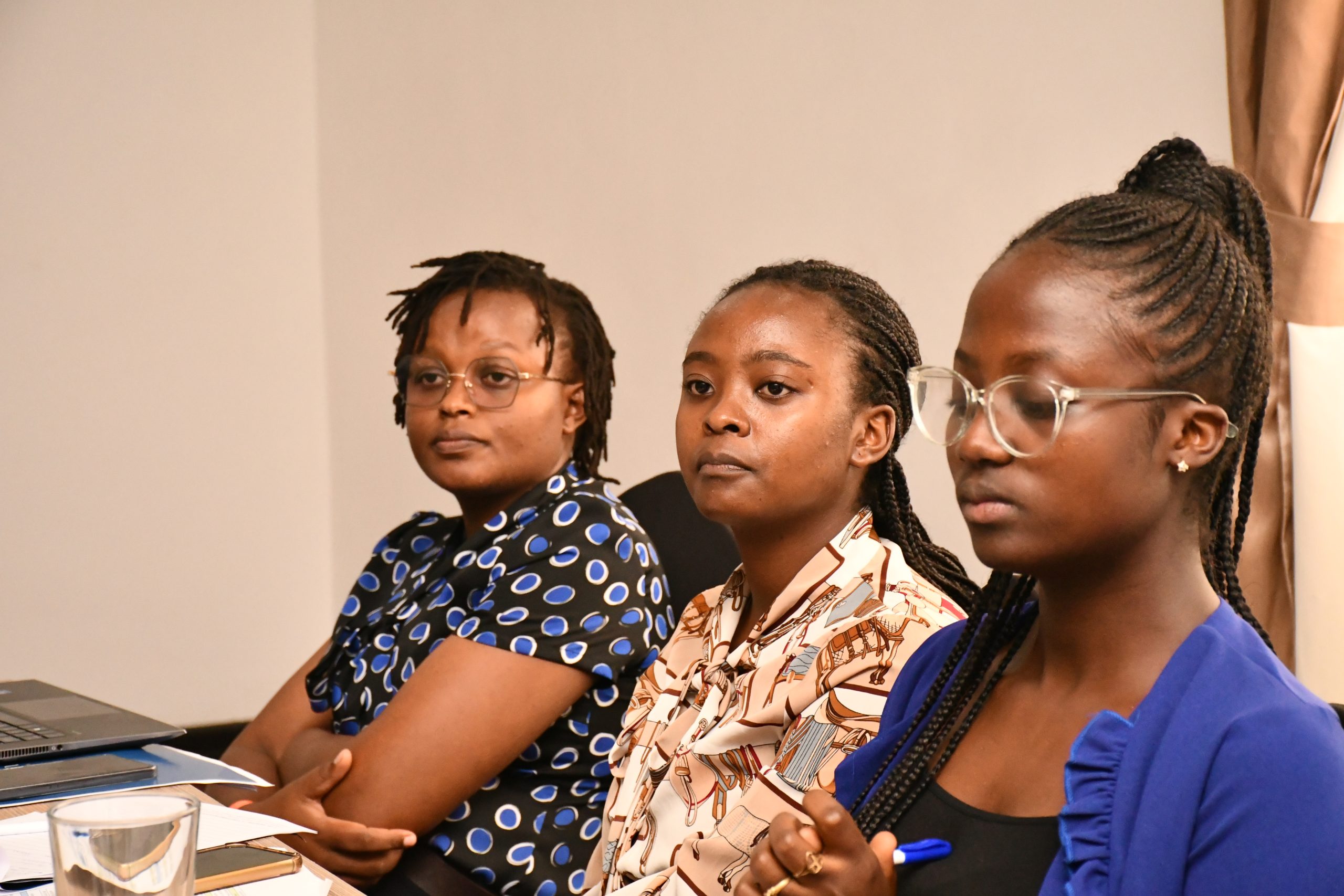ENGAGE Project health-focused Data Science curriculum development workshop

In March 2024, a workshop was convened by ENGAGE project bringing together experts in Data Science, Public Health, Statistics and Mathematics to develop a health-focused Curriculum in machine learning and data science as well as planning for the ENGAGE Project. ENabling Girls in AI and Growing Expertise (ENGAGE) Project is a collaborative effort between the University of Nairobi (UoN) and the University of San Francisco (UCSF) which aims to equip young women in University, TVETs and High School with the skills to revolutionize health care through machine learning and data science.
Prof. Julius Oyugi, the project’s Principal investigator (PI) while making his opening remarks elucidated the collaborative ethos of ENGAGE, and underscoring its commitment to uplifting girls from underprivileged backgrounds. Prof. Oyugi highlighted the ENGAGE Project’s international acclaim and the collective efforts that secured its funding. The project’s ambitious goal is to train 885 girls over five years, fostering a machine learning training program focused in health. This initiative aims to close biases gaps in data science and enhance the ability of girls and women in rural Kenya to address community health challenges.

The curriculum is aimed at enabling students to acquire and develop desired knowledge, skills and attitudes. It should be systematic and purposive, time bound, interdependent components and informative. After collaborative workshops and deliberations, participants outlined the curriculum structure, identified target regions, and developed a comprehensive work plan for project implementation. The discussions were marked by a shared commitment to inclusivity and empowerment in data science.
The workshop served as the crucible for crafting the project’s foundation, with a focus on three key areas:
- Curriculum Development: Experts in Public Health and Data Science synergized to brainstorm training topics, ensuring the curriculum encompasses these pivotal domains of knowledge.
- Project Planning: A meticulous work plan for the inaugural year devised, delineating essential steps such as identifying regional university partners and forging Memorandums of Understanding (MoUs) for collaboration.
- Building Partnerships: The imperative of collaboration with regional universities underscored. These alliances will not only extend the program’s outreach but also cultivate a sustainable network for future endeavours in research and training.

Prof. Stephen G. Kiama, Vice-Chancellor of the University of Nairobi (UoN), underscored the intrinsic value of mathematics and hailed the ENGAGE Project’s role in showcasing its significance. ‘Mathematics has some value in health and ENGAGE Project will enable people see this value,’ Prof. Kiama said. He expressed his elation in the Curriculum and project planning meeting, which promises to birth a machine learning program poised to profoundly impact public health. His presence at the inaugural meeting underscored the university’s support for a program poised to make significant strides in public health.
During the closing ceremony presided over by Prof. Leonidah Kerubo, she congratulated the ENGAGE Project team for their success in receiving the award in TAKEDA. She was impressed by the target beneficiaries of underprivileged girls and stated that it indeed would be an impactful project for the target communities.
The ENGAGE Project is more than a training program—it’s a movement towards research excellence, skill development, and cooperative effort. By nurturing a new generation of girls in health-focused machine learning and data science, the project confronts data science biases head-on, empowering young women to lead innovative solutions in their communities. By equipping girls with the skills to analyze health data, this project paves the way for a more equitable and effective healthcare system in Kenya

